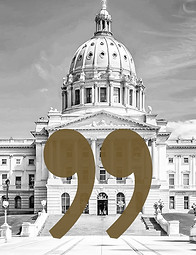ABOUT ROCK THE CAPITAL
Rock the Capital is a radical-center and action-oriented Pennsylvania government watchdog organization dedicated to bringing awareness to our sunshine laws, right-to-know, and transparency about our legislators and state agencies. What sets us apart? Our commitment to the taxpayer is that we will fight corruption in PA's political sphere and ensure that PA state agencies' are in compliance with the established law.

WHAT SETS US APART
Proven Legal Advocacy
Over 20 Years of Successful Legal Actions
With over 20 years of experience in advocating for transparency and accountability, Rock the Capital has a proven track record of leading right-to-know requests and successful legal cases to make Pennsylvania a better run state.
SEE OUR MILESTONES HERE
Focus Areas
Sunshine Laws and Right-to-Know
Advocating for transparency and the right to access government information, we are dedicated to informing the public and ensuring that the public's right to know (RTK) is upheld.
SEE MORE ABOUT RTK & SUNSHINE ACT HERE
Anti-Corruption Initiatives
Fighting for Ethical Governance
We are committed to fighting corruption and promoting ethical governance to ensure that the interests of the public are protected.
AGENCY CONCERN? CONNECT WITH US
Roadmap to Reform
Empowering Citizens
We are focused on empowering citizens with the knowledge and tools to hold state agencies accountable for their actions.
SEE OUR PA STATE AGENCY RANKINGS HERE
ENDORSEMENTS

"When it comes to the best government watchdog for PA, Rock the Capital is the best hands down. They are the best source of information on the hundreds of millions of dollars of public funds that the Legislature has never accounted for each year for decades" -Gene Stilp

“Rock the Capital has done more than any organization to create a public record where PA agencies would prefer no record at all. Its website is a powerful tool for anyone who wants to improve government and protect billions of taxpayer dollars from fraud, waste, and abuse. We are a better commonwealth because of their work.”- Tim Potts, President of Democracy Rising PA (2004-2014)

"I’ve always appreciated the depth of understanding Eric Epstein brings to the public policy conversation. We may not see eye to eye on all things political, but I can always count on him to give me the unvarnished truth.” -PA State Rep. Russ Diamond

“The public service that Eric Epstein and Rock The Capital performs is so important and necessary. I commend and thank Rock the Capital for their work in shining a light on the actions of municipal and statewide appointed and elected officials.”
-Arthur Morris, former Mayor of Lancaster

"Rock the Capital and its longtime Leader, Eric Epstein, never stop holding elected officials' feet to the fire, in the press, in the public arena and in the courtroom." -Gene Stilp

“At Rock the Capital, we believe in the power of transparency, accountability, and ethical governance for a better Pennsylvania.”
- Rock the Capital Team

